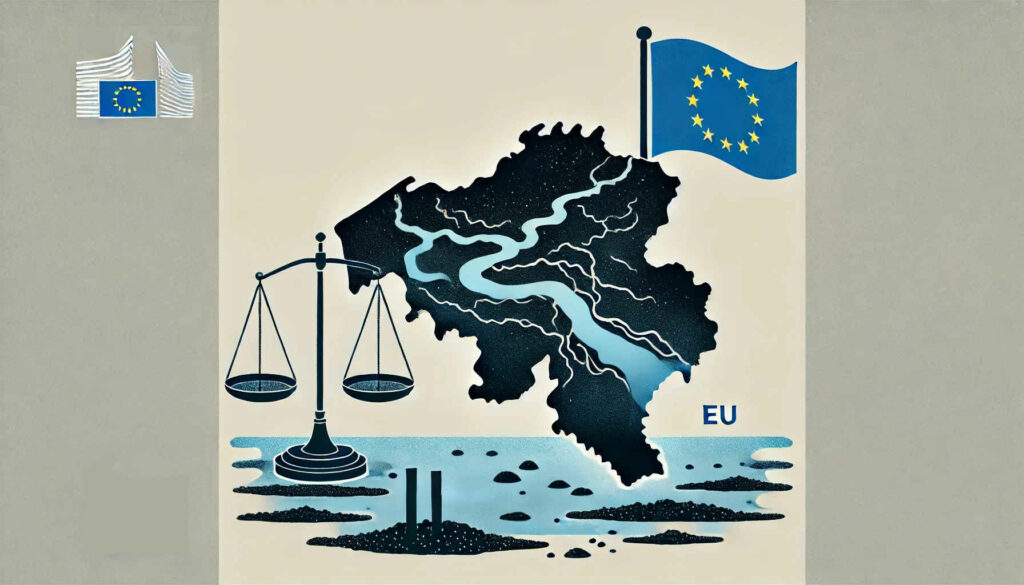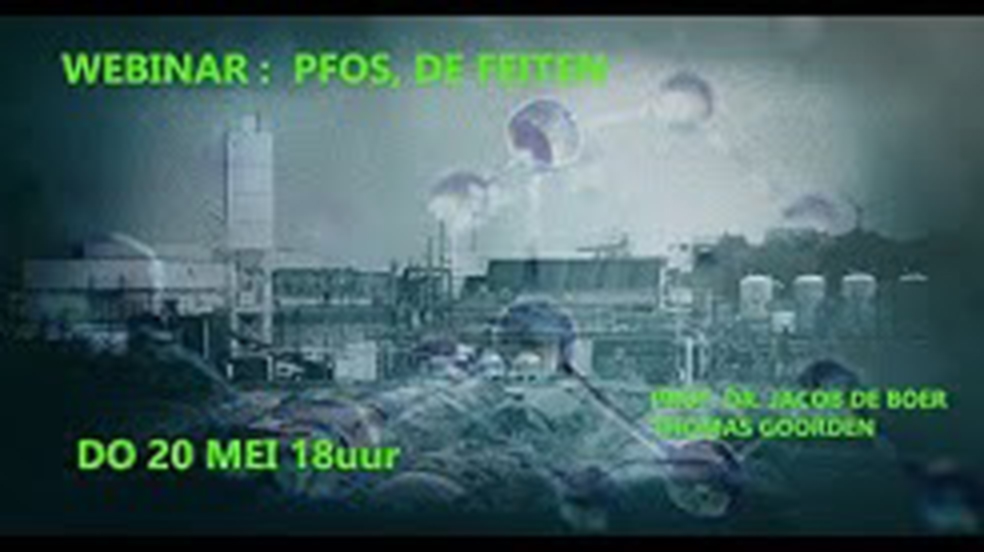07.02.2025 | Grondrecht
PFAS, nitraten en pesticiden vormen grootste uitdagingen
Europese Commissie: België moet dringend actie ondernemen voor schoner water
De Europese Commissie dringt er bij België op aan om de kwaliteit van het oppervlaktewater en grondwater aanzienlijk te verbeteren. Uit een recente beoordeling van de Kaderrichtlijn Water blijkt dat België ver verwijderd is van het behalen van de afgesproken doelen. Zonder snelle en effectieve maatregelen dreigen er financiële sancties.
Europese waternormen blijven buiten bereik voor België
Volgens de Kaderrichtlijn Water uit 2000 moeten alle Europese waterlichamen – van rivieren tot grondwaterreserves – tegen 2027 in goede ecologische en chemische staat verkeren. De cijfers laten echter een zorgwekkend beeld zien:
- In 2021 voldeed slechts 39,5% van het Europese oppervlaktewater aan de ecologische normen, en slechts 26,8% haalde de chemische normen.
- België presteert slechter dan het Europese gemiddelde: geen enkel Belgisch oppervlaktewater voldoet momenteel aan de chemische vereisten.
De belangrijkste boosdoeners zijn kwik, PFAS en zware metalen zoals lood en cadmium. Slechts 27,4% van de Belgische wateren heeft een goede ecologische status, een minimale verbetering ten opzichte van 2015 (26,2%). Nitraatvervuiling en pesticiden uit de landbouw blijven grote knelpunten.
Grondwater onder druk: overmatig gebruik en vervuiling
Hoewel de kwaliteit van het grondwater iets beter is, blijven er significante problemen:
- De beschikbaarheid van grondwater dreigt in 2027 onvoldoende te zijn door overmatige onttrekking.
- Bijna de helft van de grondwaterreserves in België heeft nog steeds een slechte chemische status, ondanks een lichte verbetering sinds 2015.
Daarnaast wijst de Europese Commissie op het verhoogde risico van overstromingen in alle Belgische gewesten. Het risicobeheer verschilt sterk per regio en wordt bemoeilijkt door financieringsproblemen en gebrekkige coördinatie.
Dreigende sancties bij niet-naleving van EU-waterrichtlijnen
Als België de doelstellingen van de Kaderrichtlijn Water niet haalt tegen 2027, kunnen er boetes volgen.
Jessika Roswall, de Europese commissaris voor Milieu, benadrukt:
💬 “België moet snel werk maken van het verbeteren van de waterkwaliteit, het aanpakken van chemische verontreiniging en het versterken van het overstromingsbeheer.”
Landbouw en industrie als grote vervuilers
De landbouwsector en industriële activiteiten zijn de belangrijkste oorzaken van de huidige waterverontreiniging. Het Europees Milieuagentschap wees eerder al op deze factoren in een rapport uit oktober vorig jaar.
📍 Vooral in West-Vlaanderen is de situatie kritiek, met hoge concentraties pesticiden en PFAS door zowel intensieve landbouw als historische industriële vervuiling.
Reactie van Vlaams minister Jo Brouns: “Niet alles is even zwart-wit”
Jo Brouns (CD&V), Vlaams minister van Omgeving, wijst op verschillende lopende initiatieven die de waterkwaliteit moeten verbeteren, waaronder de Blue Deal, het vernieuwde Actieplan Pesticiden en het Mestactieplan.
Brouns erkent echter dat het behalen van de 2027-doelstellingen onhaalbaar is:
💬 “We wisten al dat deze doelen niet binnen bereik lagen. Vlaanderen moet verbeteren, maar we kunnen geen ecologisch paradijs bouwen ten koste van onze economie.”
Hij wijst ook op het strenge beoordelingssysteem van de Europese Commissie, waarbij waterlichamen volledig worden afgekeurd als ze voor slechts één stof niet voldoen.
💬 “Een beetje verhoogde cholesterol maakt je niet meteen ernstig ziek. Stapsgewijze verbeteringen brengen ons uiteindelijk waar we moeten zijn.”
Brouns zal bij de EU pleiten voor meer maatwerk en aandacht voor de specifieke kenmerken van Vlaanderen.



